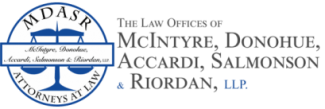March 2022 New York Workers’
Compensation Law Reporter Highlights
Board’s failure to set reimbursement rate for homecare warrants remand
Case Name: Whitney v. Pregis Cor. 121 NYWCLR 207 (NY APP Div 2021)
Ruling: Upon review, the Appellate Division affirmed the finding that the claimant had a causally related need for home health aide services to supervise him at all times. However, the court reversed the Board’s award of reimbursement for such services by family members, a the Board did not determine the rate or amount of the reimbursement.
What it means: Although the employer is liable for the payment for the expenses of medical or other attendance or treatment for such period as the nature of the injury or the process of recovery may require, including home care provided by a claimant’s spouse, the value of that care must be determined on a basis that effects the realities of the situation.
Firefighter compensably connects PTSD to traumatic incidents at work
Case Name: Reith v. Albany, City of, 121 NYWCLR 208 (NY App Div 2021)
Ruling: In reversing, the appellate division held that the board’s decision disallowing a firefighter’s claim for casually related psychological injury was not supported by substantial evidence.
What it means: Where there is a discrepancy between the claimant’s testimony regarding how an alleged accidental injury occurred and video evidence depicting the incident which indicates that the claimant exaggerated the incident, the claim will be disallowed.
Home attendant proves she sustained occupational disease to neck, back
Case Name: Bestare Management Co., Inc. 121 NYWCLR211 (NYWCB, Full Board 2021)
Ruling: The Full Board held that the record supported a finding that the claimant sustained an occupational disease involving injuries to her neck, back and right shoulder due to her repetitive work as a home attendant.
What it means: Where the claimant’s injuries were caused by a distinctive feature of her employment — the heavy physical labor performed by a home attendant in caring for patients who cannot care for themselves — and the claimant credibly testifies that while working for the employer, she continued to perform heavy physical work, including lifting heavy grocery bags, holding her client up while he walked, and lifting her client to help him sit on a walker, the claimant established that she sustained an occupational disease.
Social worker establishes prevalence of COVID-19 at workplace
Case Name: Episcopal Health Services, Inc. 121 NYWCLR 213 (NY WCB, Panel 2021)
Ruling: A Board panel held that the case was properly established by the claimant, who alleged she contracted COVID-19 as a result of her work duties in the employer hospital.
What it means: Where a hospital social worker’s duties required her to go into patients’ rooms to perform assessments, she was only required to wear personal protective equipment when entering rooms with COVID-19 patients, and at least five co-workers tested positive before she did, sufficient evidence exists to establish prevalence. Therefore, the claimant is entitled to the presumption of WCL Section 21(1) that her COVID also occurred during the course of her employment.

Leave A Comment